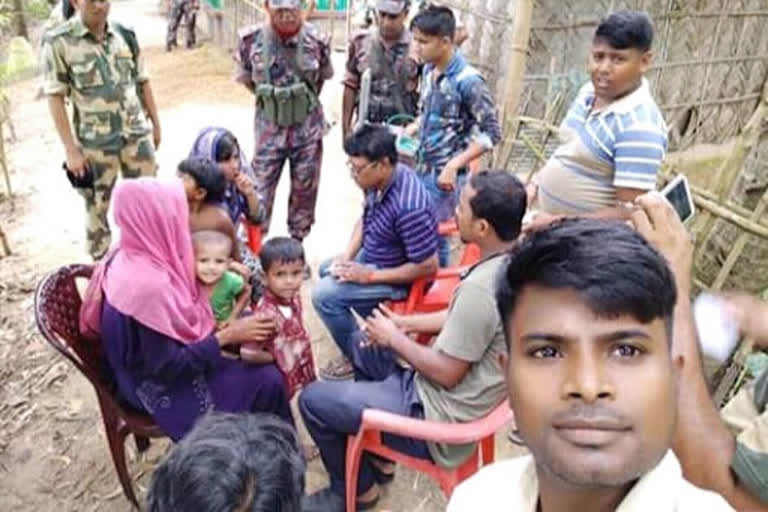Chennai (Tamil Nadu):Tucked away in a calm suburb of Kelambakkam, the air in the Rohingya Muslim refugees camp was abuzz with preparations by several men for making a delicious porridge to break the daily Ramzan fast.
Sporting an infectious smile, Mohammed Ayub welcomes a neighbour even as he breaks up vermicelli noodles from packs strewn around and drops them in a huge vessel with boiling water as another man places firewood in the makeshift earthen stove.
A butcher in a nearby chicken-cum- mutton outlet, 22-year-old Ayub says he thanks God to pray and fast peacefully in the holy month of Ramadan after a 'bitter' phase in his native land of Myanmar.
"Tamil Nadu bahuth pasandh hai," (I like Tamil Nadu very much) he says as his curious children look on.
Ayub is one among those who came to Tamil Nadu in 2016 following a stay in Jammu and Kashmir for some time.
They had reached the hill territory following a perilous journey from Myanmar.
"I am happy and thank God for having a job even during the days of the lockdown. The stall I work is open till afternoon from 9 AM and I earn about Rs 10,000 per month and try to make ends meet," he says with a laugh when asked if his earnings have been affected due to curbs.
A cyclone shelter building at Kelambakkam, which was recently given a fresh coat of paint, is the current home of nearly 100 Rohingyas who belong to 18 families.
The neighbourhood is on the way to Mamallapuram, about 25 km from Tiruvanmiyur in south Chennai.
While some Rohingya men work as butchers, some are helpers in restaurants and others do odd jobs like delivering goods on their fish carts.
The refugees, who hail from regions, including Maungdan in Myanmar, have registered with the Foreigners Registration Office (Police Superintendent), in Kancheepuram and have a Residential Permit issued by the authorities.
Yearning for relief from the sweltering heat, while several men have a bath in an open enclosure in front of the building, Yusuf, a delivery man in the local market, moves his tri-cycle cart to a nearby lane to carry out repairs.
"There was no work for more than a month," Yusuf says.
Asked how he manages, he says "it is difficult, we somehow tackle."
Trying to fix glitches in the engine, he hopes that with the easing of curbs, he will now find work.
The 28-year-old man, a father of a boy and girl, says they were however provided when it came to essential commodities like cooking oil, pulses, rice and wheat through the lockdown period since March 24 evening.
"Koi farak nahi karta," (no one differentiates) he says and recalls the support they got from the government authorities and the local people, "be it Muslims or Hindus," to keep them going without hassles.
"We got rice supplies from the (Shirdi Sai) Baba temple (in the vicinity) as well. We are happy everyone lends us a helping hand," says Yusuf.
Not surprisingly, the bonding between the locals and the refugees is too striking to miss as Yusuf's wife combs the hair of an 'akka' (elder sister and she is a neighbour) Kalaichelvi, beneath the shade of a tree in a friendly chat.
Kalaichelvi praises them for their hard work and says some well-to-do Muslims even gifted motors (engines) to the Rohingya men after seeing them slog.
"They now have motorised tricycles which make their work easy," she says.
